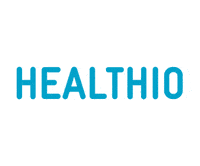TeraRecon today announced that its first-of-kind Northstar™ AI Explorer has reached a new milestone that allows physicians to interact with individual measurements, markings, and findings created by AI image processing algorithms. To demonstrate the potential of these AI-assisted workflows, the company is previewing an end-to-end cardiac MR analysis workflow in partnership with EnvoyAI and Corstem that provides highly automated results while keeping the physician informed and in control. The new Northstar features are the latest in a rapid progression of technological achievements made as the product evolves from a results viewer to a more powerful and integrated AI interaction and observation portal.
The new Northstar AI Explorer™ provides the ability to not only accept or reject certain images and reports created by AI, as Northstar has done previously, but now empowers physicians to fine-tune findings and interrogate the clinical assumptions that underlie the results in AI-generated reports. The system is composed of a web-based user interface that works seamlessly alongside or within the physicians’ current PACS, EMR, and enterprise viewing systems.
The Northstar AI Explorer and the EnvoyAI platform together form an application framework upon which any 3rd party algorithm developer can build. “TeraRecon strives to make AI-assisted medical imaging interpretations more accessible to physicians by offering an unprecedented level of transparency into AI functionality along with deep integrations into existing workflows that optimize ease of use and efficiency. By exposing the key clinical assumptions that these AI machines are making and stopping to collect physician feedback before proceeding, we reduce risk while accelerating innovation and clinical adoption”, said Jeff Sorenson, President and CEO of TeraRecon.
The cardiac MR analysis workflow prototype is composed of Corstem AI-generated anatomic contours and clinical assumptions being quickly verified or adjusted. The physician feedback is sent to the Corstem application hosted on the EnvoyAI platform. The workflow then completes the cardiac function and fully quantitative pixel-wise perfusion analyses, marks updated findings in the images, and generates the report. The physician can make further adjustments and send the results to the permanent archive, such as the PACS or VNA.
“The most exciting aspect of the Northstar AI Explorer is that physicians can appreciate the quality of the AI findings”, said Pascal Labrecque, Chief Operating Officer of Corstem. Pascal continued, “Our proprietary deep learning algorithm performs cardiac MR contouring with some of the most sophisticated motion correction technology available. The combination of TeraRecon’s Northstar AI Explorer and the EnvoyAI platform allows cutting-edge AI technology to really shine.”
The trained AI algorithms are not continuously learning from physician feedback in real-time, to ensure that tight version-control and testing regimens are maintained. However, with permission and appropriate data sharing protocols from the healthcare institution, their anonymized image data and physician ground truthing feedback may be shared and used by the algorithm developer to make improved versions.
Northstar was installed at its first beta-release customer site this month, Wake Radiology (www.wakerad.com) in Raleigh, North Carolina. “My expectation is that the Northstar viewer is going to simplify the experience for my radiologists. The output from these AI algorithms are expected to far surpass what we could generate individually on any given day, for specific reports. Volumetric measurements and serial comparisons that could not be done or would take a lot of time to do individually should be automated with AI”, said Dr. William Way, Chief Medical Officer of Wake Radiology. Dr. Way continued, “Having these results readily available and nicely integrated into our PACS and reporting workflows is vastly superior to what we are doing now.”
“AI is important to where we are going as a radiology provider, and it is nice to be on the cutting edge”, said Matt Dewey, Chief Information Officer of Wake Radiology. Matt continued, “Because algorithms work differently and each of them has different inputs and outputs, my radiologists would otherwise have to have a different way of working with each one. Northstar solves this problem by providing a simple and consistent way that our physicians work with the output of algorithms from many sources, and adapting itself to their personal preferences.”
TeraRecon AI solutions will be demonstrated during the Society for Imaging Informatics in Medicine annual meeting, May 31st through June 2nd in National Harbor, Maryland at Booth #405. Online demonstrations and more information are available by contacting TeraRecon at [email protected].
Learn more about TeraRecon
Latest Articles
PACS, EMR, TeraRecon, VNA, AI, deep learning, Sectra VNA, SIIM 2018, Jeff Sorenson, EnvoyAI, Dr. William Way, Matt Dewey, Northstar AI Explorer, Corstem, AI-generated report, enterprise viewing systems, Pascal Labrecque, deep learning algorithm, cardiac MR, AI image processing algorithms
TeraRecon today announced that its first-of-kind Northstar™ AI Explorer has reached a new milestone that allows physicians to interact with individual measurements, markings, and findings created by AI image processing algorithms.

























